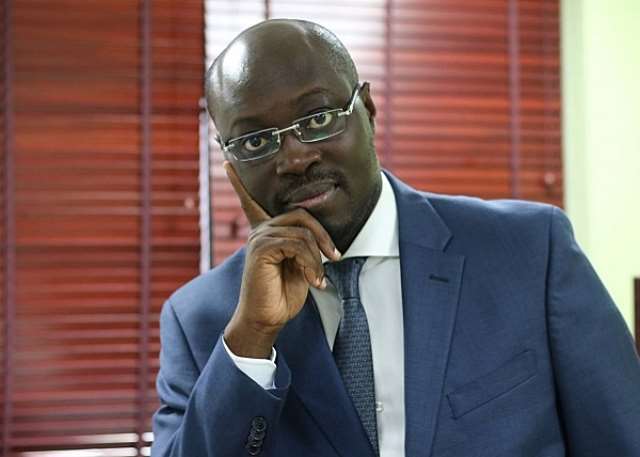
Dr. Cassiel Ato Forson
A professor of Finance and Economics at the University of Ghana has warned government not to celebrate what he calls a superficial display of fiscal discipline, insisting that the country is far from solving its core economic problems.
Charles Godfred Ackah, speaking on JoyNews’ PM Express Business Edition last Thursday, took issue with government’s posture of not spending.
He described it as dangerously misleading, pointing out that the focus on narrowing deficits and cutting spending does not reflect the real needs of a struggling population.
“Well, fiscal discipline is good if it’s defined as a way of reducing waste of resources, corruption, and then improving on expense efficiency, then it’s good,” he said.
“But if fiscal discipline means that you should run a budget surplus as a developing country that has so much waste, so much idle resources… that’s not good policy.”
He painted a bleak picture of Ghana’s current socioeconomic realities – roads in disrepair, qualified graduates unemployed for years, and hospitals without beds.
He said the idea of “cutting your coat according to your cloth” makes little sense in a country that still faces major infrastructure and social investment deficits.
“You need to invest in the productive capacity of the country,” he said.
“And if that means you must run a reasonable budget deficit… and as far as this budget deficit is going into investing—even in the private sector or have households and individuals… that’s not imprudence.”
According to him, budget deficits are not inherently bad and should be judged by the purpose for which they are run.
“If we are borrowing from the central bank or borrowing from Treasury—even external borrowing—and it’s not for salaries and wages, it’s not for buying V8s… and is to invest in the economy, particularly infrastructure… that’s acceptable.”
He questioned why Ghana, with all its unresolved development challenges, would be celebrating what appears to be tight spending.
“Even America is running a budget deficit, Malaysia, Singapore… tell me how many countries in the world run a budget surplus?” he asked.
Prof. Ackah added that Ghana’s fiscal strategy must not ignore urgent national needs.
“Why will a poor country like us seem to be happy that you are cutting your coat according to your cloth? What does that mean? Have you finished solving our infrastructure problems?”
He stressed that government spending is not the enemy if it is productive and helps crowd in private sector growth.
“We need to spend—government needs to spend—we have so much to do. Go to hospitals; there are no beds, and people are dying.”
He further noted the dire state of wages in Ghana’s public sector.
“Look at the average wage paid… public sector earners… look at inflation, look at the cost of rent, look at the cost of food. And people are being paid ¢1,000 and ¢1,200 after graduating from the university.”
To him, the so-called discipline lacks meaning if basic issues remain unaddressed.
“If all of these things are problems to solve, and the government sits down and says we are trying to be disciplined, I don’t know what that means.”
DISCLAIMER: The Views, Comments, Opinions, Contributions and Statements made by Readers and Contributors on this platform do not necessarily represent the views or policy of Multimedia Group Limited.
DISCLAIMER: The Views, Comments, Opinions, Contributions and Statements made by Readers and Contributors on this platform do not necessarily represent the views or policy of Multimedia Group Limited.
Source: myjoyonline.com










